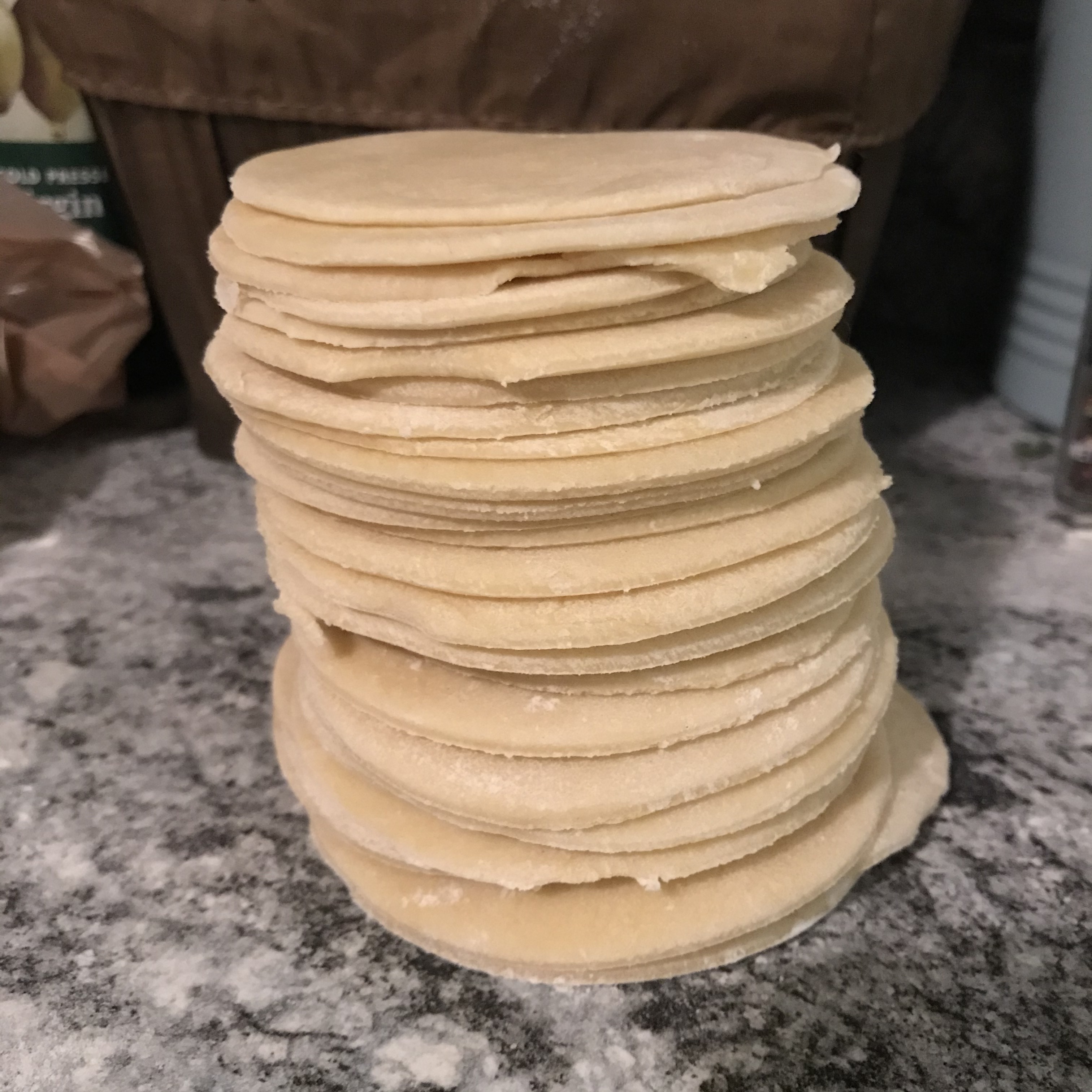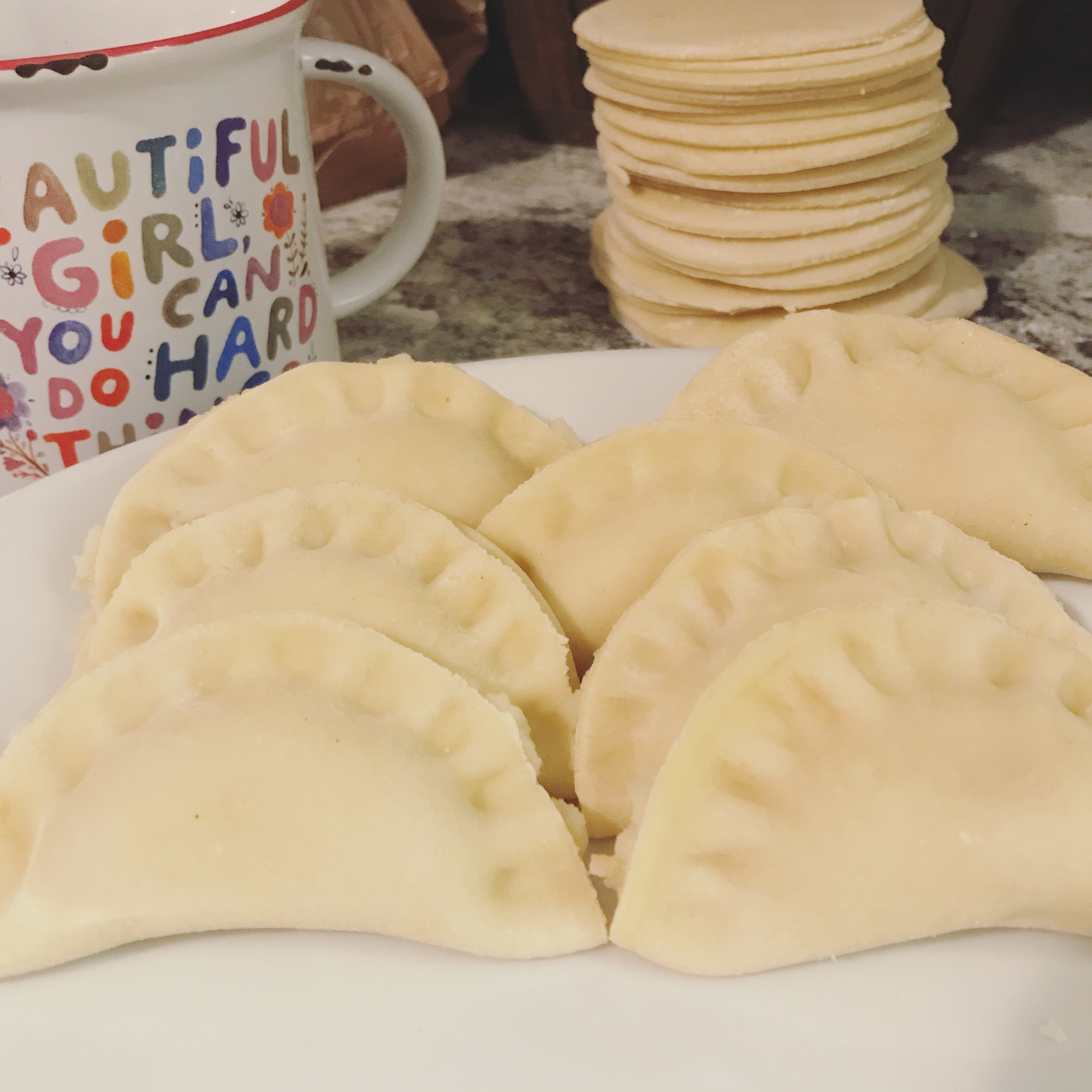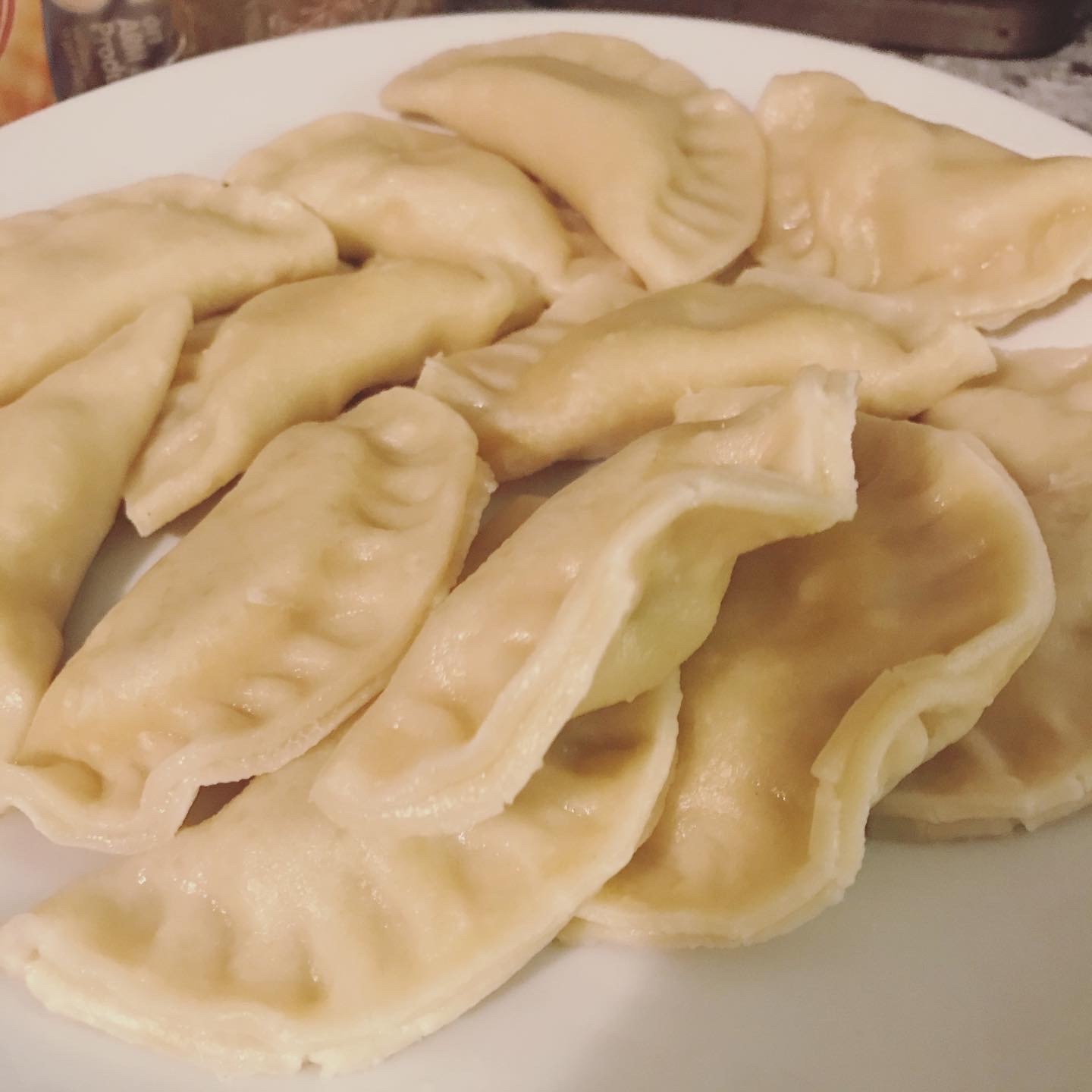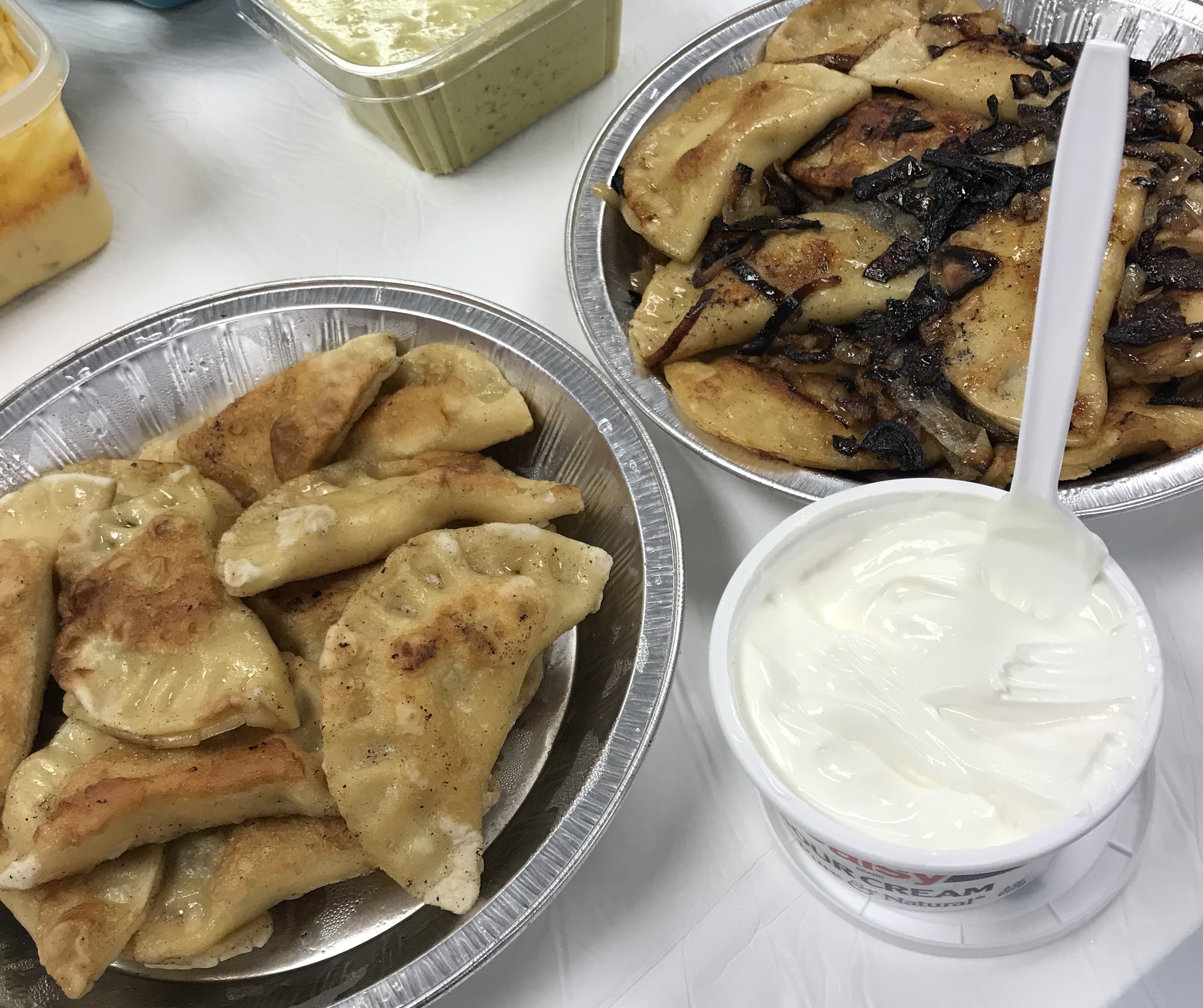[RECIPE] Holiday pierogi adventures!
Most of y'all probably already know about this from the flailing I've done across various forums but I'm posting about it here, too, so buckle up!
'Tis the season for office holiday celebrations, and, as is our usual wont, my department put a pot luck on the calendar for later this morning. I've talked with my coworkers about my family's annual Christmas traditions at length—a slightly bastardized version of the traditional Polish Wigilia dinner, featuring nine courses instead of twelve and kielbasa/pierogi instead of carp or other fish because my mother and her numerous siblings were picky eaters when they were kids. Naturally, talking such a big game inspired my coworkers to "voluntell" me that I would be providing pierogi from scratch.
I was, of course, happy to do it, even though I always forget between batches what a pain in the ass it actually is to make pierogi from start to finish, and they turned out pretty damn good if I do say so myself.
The recipe I used for the dough came from the phenomenal cookbook Polska: New Polish Cooking by Zuza Zak, which is full of all manner of Polish delights including several variations on the humble pierogi and a couple of other styles of Eastern European dumpling.  I used the dough recipe from her pierogi ruskie, which are a traditional potato and cheese pierog, though Zuza's—and most other old world recipes I ran across—use a cubed potato rather than a mashed potato for their filling, where I'm more used to the latter. I made the filling mostly from imagination and the experience I've amassed consuming hundreds of pierogi over the course of my thirty years on this delightful terror planet.
I used the dough recipe from her pierogi ruskie, which are a traditional potato and cheese pierog, though Zuza's—and most other old world recipes I ran across—use a cubed potato rather than a mashed potato for their filling, where I'm more used to the latter. I made the filling mostly from imagination and the experience I've amassed consuming hundreds of pierogi over the course of my thirty years on this delightful terror planet.
The dough itself was fairly simple, though the process of making it was time-consuming. I used shoulder muscles I didn't even know I had anymore rolling it out thin enough to strike an appropriate "shell to filling" ratio, which is more a commentary on my own physical state than anything. Because I don't own cookie cutters of any variety, I used the ring off a mason jar lid to cut my dumplings out, so they're very slightly larger than your standard pierogi. I used my pressure cooker to do up some quick-and-dirty mashed potatoes, into which I stirred a hearty helping of beer cheese—a delightful IPA cheddar from somewhere around the general London area, if my local grocer is to be believed—and a little bit of mascarpone to keep the texture creamy. A teaspoon or so of filling and a solid pinch-and-boil later they turned out great. I only lost one to structural integrity problems during boiling, which is a pretty solid success rate as these things go.
I used my pressure cooker to do up some quick-and-dirty mashed potatoes, into which I stirred a hearty helping of beer cheese—a delightful IPA cheddar from somewhere around the general London area, if my local grocer is to be believed—and a little bit of mascarpone to keep the texture creamy. A teaspoon or so of filling and a solid pinch-and-boil later they turned out great. I only lost one to structural integrity problems during boiling, which is a pretty solid success rate as these things go.


I let them sit overnight on covered plates and then fried them up this morning, half in plain butter and the other half in butter with onions. Overall, not counting the one I lost to structural integrity as mentioned above—which I did absolutely eat, as a reward to myself for making pierogi at all—the recipe yielded 32 pierogi of nearly empanada size, though they're not as full as an empanada would be. I packed them up before I could get a good picture of them looking all luscious and golden in a bed of caramelized onions because I didn't want them to get too cold, but I'll try to update with one later I managed to snag one as we were setting up, so here you are:

And now, here's Zuza's dough recipe for anyone who's interested in trying pierogi on their own:
ZUZA ZAK'S PIEROGI DOUGH*
2 1/2 cups plain flour
2 egg yolks
2 tbsp melted, unsalted butter
a large pinch of salt
a frugal 1/2 cup of warm water, preferably from a boiled kettle
[Combine] the flour with the egg yolks, melted butter, and salt with enough of the warm water to bring the mixture together in a medium bowl. Knead the mixture until it is smooth (10 minutes should suffice), adding more water if you need it. Cover with a damp tea towel and allow to rest for 20 minutes.
*It's worth mentioning that this is not the only recipe Zuza's book has for pierogi dough. Her other recipe is used for making baked pierogi and differs slightly in volume of ingredients while omitting the egg yolks except as a glaze.